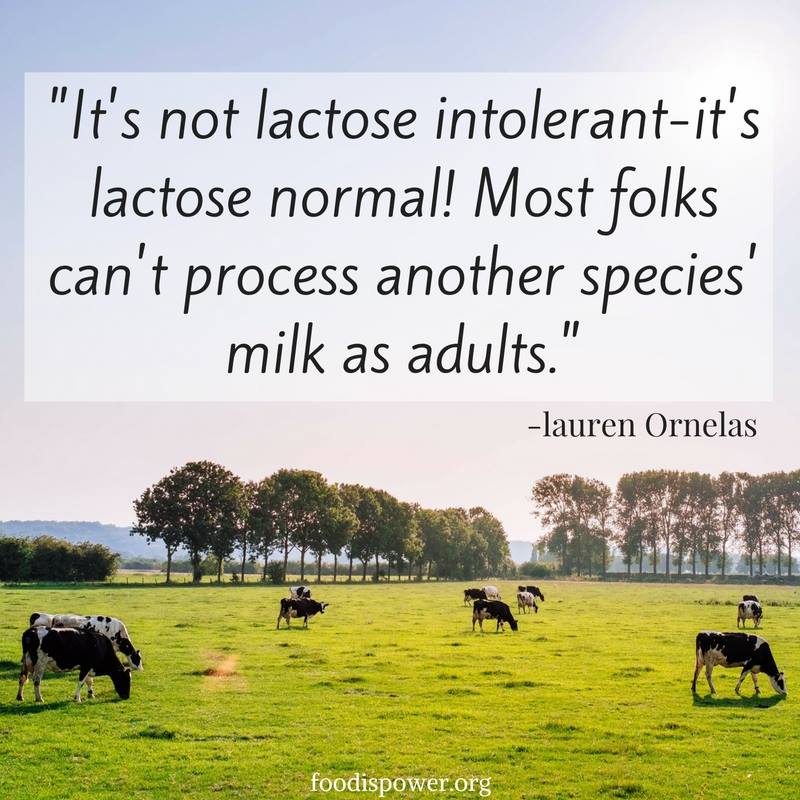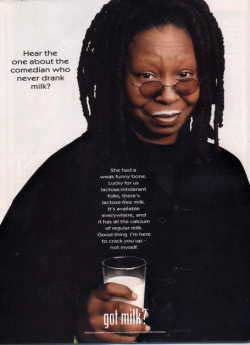Black Health: Lactose, Dairy & Cancer
“95% of Asians, 60-80% of Afro-Caribbeans and Ashkenazi Jews, 80-100% of American Indians, and 50-80% of Latinos are lactose intolerant“
Does low lactase production (Lactose ‘Intolerance’) result in greater risk of prostrate cancer?
 On the 15th June 2014, a vibrant group of men from Leeds, West Yorkshire, got together as to participant in the Leeds Sky Ride. The group were sponsored by Prostrate Cancer UK and were riding on behalf of Leeds Black Health Initiative in order to raise awareness about the disproportionately higher rates of prostrate cancer among black men. In short interview with ITV Calendar, one of the riders (Robert Smith) said “…we have issues, it’s like at the moment, prostrate cancer, it affects more black people, 1 in 4, than anybody else, why is that? We need to know why, we need to get grasp of things…“. As such this article we will explore the possibility that a low production of lactase results in greater risk of prostrate cancer in men that consume dairy products.
On the 15th June 2014, a vibrant group of men from Leeds, West Yorkshire, got together as to participant in the Leeds Sky Ride. The group were sponsored by Prostrate Cancer UK and were riding on behalf of Leeds Black Health Initiative in order to raise awareness about the disproportionately higher rates of prostrate cancer among black men. In short interview with ITV Calendar, one of the riders (Robert Smith) said “…we have issues, it’s like at the moment, prostrate cancer, it affects more black people, 1 in 4, than anybody else, why is that? We need to know why, we need to get grasp of things…“. As such this article we will explore the possibility that a low production of lactase results in greater risk of prostrate cancer in men that consume dairy products.
Key work done by ‘Prostrate Cancer UK states that:
“Black men are more likely to get prostate cancer than men of other ethnic backgrounds. In the UK, about 1 in 4 Black men will get prostate cancer at some point in their lives. The reasons for this are not yet clear but might be linked to genes… We already knew that Black men had the highest risk of developing prostate cancer among all ethnic groups, and that they were three times more likely to develop prostate cancer compared to white men of the same age. This information is still correct – it is just a different way of explaining a man’s risk of getting prostate cancer.“
Some studies suggest that alcohol can be a significant factor:
“…those who drank heavily — 50 grams (1.7 ounces) of pure alcohol a day, the amount in four shots of hard liquor, five or more days a week — were more than twice as likely as less heavy drinkers to develop what is called high-grade prostate cancer…” source
However, this appears to apply to all men equally regardless of ethnic background and therefore we can rule alcohol out of this debate as we are mainly seeking why prostate cancer affects black men significantly more than it does other ethnic groups.
Over the last ten years or so, more and more evidence has been cited demonstrating the relationship between the consumption of dairy products and cancer, in particular cancers of the reproductive tract such as breast and prostrate cancers. One key piece of research is Dr. T Colin Campbell’s 2007 ‘China Study’, which has been considered “the most comprehensive study of health and nutrition ever conducted“. This is a detailed study that collaborates longitudinal and scientific evidence as to demonstrate the links between the consumption of animal protein (including all dairy and egg products) and various forms of cancer. Another key figure raising awareness about the health risks associated with the intake of dairy is Dr. John McDougall.
Lactose Tolerability
 Unlike the consumption of alcohol dairy affects the majority of black and ethnic minority people differently from the majority of white people. This difference relates to ‘lactose tolerability’, an individual’s ability to digest lactose, which is a particular sugar found in mother’s milk i.e. cows/goats milk, hence in all dairy products. Lactose a rather complex sugar as it is conformed of double molecules which when consumed are harder for the body to break down than other sugars. The body’s ability to digest lactose varies from person to person depending on how much lactase their bodies produce. Lactase is basically a digestive enzyme capable of splitting/digesting the double molecules in lactose. Everyone comes into the world producing lactase as mother’s milk is supposed to be the first thing we ‘eat’, and it is necessary that we can digest it. However most children eventually stop producing this enzyme ‘lactase’ as they are gradually weaned off mothers milk and are more able to acquire their energy from solid foods. By the time children lose their first teeth they should be no longer consuming mother’s milk (of any kind), hence why the vast majority of people stop producing lactase during childhood which in turn is why children often react badly when moved onto cow’s milk (as they are producing less lactase).
Unlike the consumption of alcohol dairy affects the majority of black and ethnic minority people differently from the majority of white people. This difference relates to ‘lactose tolerability’, an individual’s ability to digest lactose, which is a particular sugar found in mother’s milk i.e. cows/goats milk, hence in all dairy products. Lactose a rather complex sugar as it is conformed of double molecules which when consumed are harder for the body to break down than other sugars. The body’s ability to digest lactose varies from person to person depending on how much lactase their bodies produce. Lactase is basically a digestive enzyme capable of splitting/digesting the double molecules in lactose. Everyone comes into the world producing lactase as mother’s milk is supposed to be the first thing we ‘eat’, and it is necessary that we can digest it. However most children eventually stop producing this enzyme ‘lactase’ as they are gradually weaned off mothers milk and are more able to acquire their energy from solid foods. By the time children lose their first teeth they should be no longer consuming mother’s milk (of any kind), hence why the vast majority of people stop producing lactase during childhood which in turn is why children often react badly when moved onto cow’s milk (as they are producing less lactase).
Surprisingly, 60% – 70% of the white population appear to maintain their capacity to produce lactase well into their adulthood and so do not endure many of the symptoms associated with lactose intake. Conversely 70% – 80% of the non-white population tend not produce lactase after weaning hence encounter problems associated with digestion and consumption of dairy products. In Western/orthodox medicine this is termed ‘Lactose Intolerance’, although use of this type of language is at very least misleading as it supposes that having higher lactose tolerability i.e. being able to tolerate/digest milk after childhood is the norm and implies that having no or lower lactase production is a deficiency or genetic disorder and hence a medical condition.
This in fact couldn’t be further from the truth, i.e. it is often stated that humans are the only species of animal that 1. consume milk after weaning, and 2. from another species of animal (although there is one exception we’ll address another time). Mother’s milk regardless of what type of animal it is produced by, can 1., only ever be produced by a pregnant female, and of whose production is a natural/biological process resulting in 2. a substance intended for its own young and tailored for its own species. Unlike water, which is produced by mother nature for all her children.
So why, if the majority of the world’s population are lactose intolerant, are the majority of white people tolerant of lactose? It is not entirely clear but is thought that white Europeans have built up a higher tolerance to lactose as they have historically consumed greater amounts of milk since their post nomadic domination and domestication of animals. This history however has not been the same for the other racial groups hence why the majority of people maintain lower levels of lactose tolerance. Nevertheless, many of these people do not associate their negative symptoms with dairy intake, and some do not experience any symptoms at all until adulthood, more of which is covered on the Food Empowerment Project ‘s (F.E.P.) website who provide some really useful information and advice about moving away from dairy consumption and lots more.
However, while it is true that many of the implications associated with dairy consumption have been known for a long time (see the following playlist featuring a snippet from a 1982 interview with Nathan Pritikin and some other enlightening videos), there is nevertheless a general lack of awareness about the issue. This in part is probably due to strategic advertising campaigns that often target a specific audience in order to ‘rinse/milk the system’ hence yield a greater profit. The following images have no doubt targeted people of afro-American/Caribbean backgrounds. Such campaigns ensure that targeted groups are included, deluded and is encouraged to buy and consume their product regardless of whether or not it gives rise to health implications in their targeted groups. It begs the question, are dairy providers uninformed about how their products effects black and ethnic minority people?
Therefore, retuning to the point, although dairy consumption increases risk of prostrate cancer in all men, we know there is a significant difference in the way that people from different racial groups respond to it; and although white folk are more tolerable of it, the science suggests it nevertheless remains harmful to them.
But does having lower lactose tolerance result an even greater risk in developing prostrate cancer? Let us consider that if black men are approximately three times more likely to be lactose intolerant than white men whilst their chances of developing prostrate cancer is also 3 times greater, and we know that prostrate cancer is strongly associated with intake of dairy which of course is saturated with lactose, then it seems conclusive that other risks associated with the intake of dairy will also be magnified including prostrate cancer. However, it is important to note that lactose intolerance is not a cause of prostrate cancer etc, the cause is associated with the intake of dairy which in turn is more detrimental to people who ‘lack’ lactase. Therefore, the solution is not in seeking to increase or stimulate lactase production by synthetic means, although may reduce the risk, but rather, the solution put simply is to ditch the lactose a.k.a. dairy products.
Conflicting Evidence?
Not, that while Asian people also tend to have little or not tolerance to lactose, it is said that those living in Asia (see: PCF) have the lowest incidence of prostrate cancer, which would seem to conflict with the above. However, also note that Asian countries tend to have a much lower intake of dairy products as compared to Western and developed countries, whist Asians living in regions with higher intakes of dairy do indeed appear to witness a higher incidence of prostrate cancer, see the 25 fold increase in Japan.
Does it run in your family? As noted, while it is true that our lactose in/tolerance is indeed genetic it not a medical condition and its symptoms are not random but result from environmental factors such as the intake of dairy, however orthodox sources often imply that illnesses such cancer are hereditary. This is certainly what dairy producers and pharmaceutical suppliers would have people believe. Dairy producers could then dismiss accountability, and if illnesses are genetic then there would be little much that people could do to prevent or improve their situation, depending more so on doctors and the drugs they prescribe spelling profit to pharmaceutics, typically treating symptoms and not addressing real causes. It is common knowledge that families tend to share similar dietary patterns and are therefore more likely to develop similar dietary problems hence ‘it runs in the diet’ and not ‘the family’. Milton Mills briefly covers this in one of the videos above and also T Colin Campbell and many others have addressed related issues.
Nevertheless, things are changing and people are becoming wiser about the causes of ill health recognising that destiny is in their hands. So while much of the world is engaged in this pandemic food fight, the purpose of this project is to raise more cancer awareness and disseminate as much truth about lactose tolerance as possible, particularly in Black and Asian communities. Please consider supporting this project by either becoming an active volunteer or through becoming a paying supporter.









